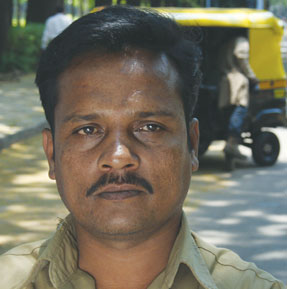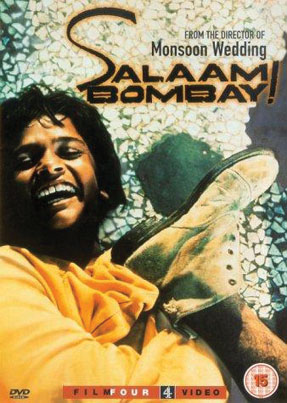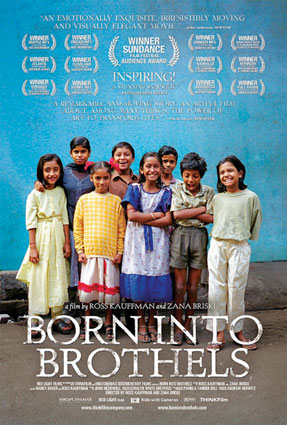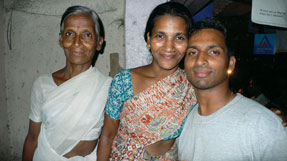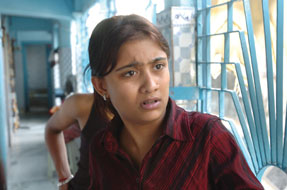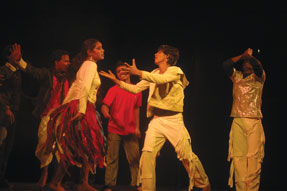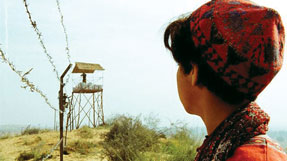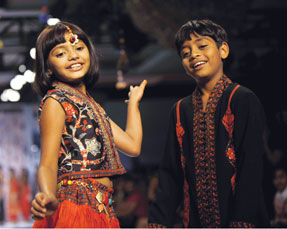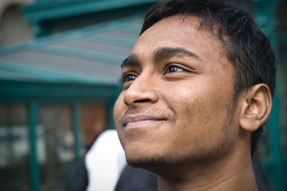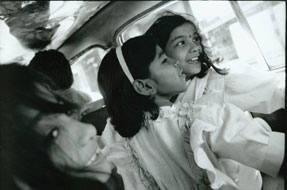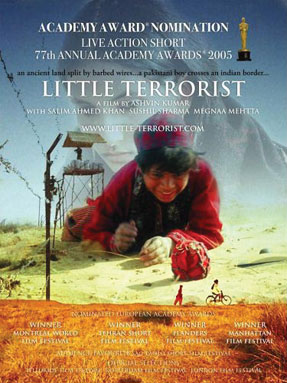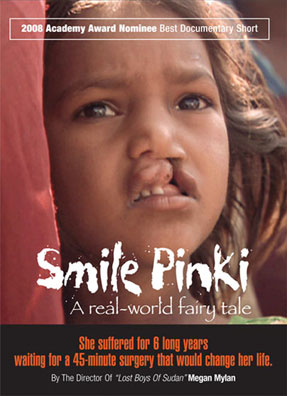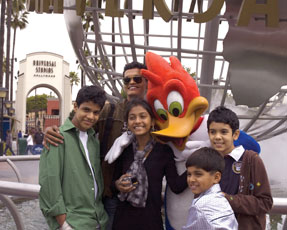Arts
Slumdog Redux

Life can be cruel for celebrated slum children after the music stops.
| Hello sir. You know that movie Salaam Bombay? I acted in that movie.”
“Yeah that old movie — oh, you were in it?” “I was the main character, sir.”
That is a recent exchange in an autorickshaw in Bangalore driven by Shaffiq Syed, the rag-picker kid who shot to instant recognition with Mira Nair’s path-breaking, Oscar-nominated film Salaam Bombay in 1988. Syed had run away from his home in Bangalore to Mumbai, because “all the boys talked about what a big city Mumbai was.” He left home with three friends, but they lost each other on the train as “we kept getting down in various stations to avoid the ticket checker as we were traveling without tickets.” Finally, he reached Mumbai and ended up near Juhu beach. “I had never seen the sea in my entire life. I just got out of my clothes and jumped into the waves. The water was salty. Then I saw a huge building nearby, which was probably a hotel, but I thought it was a salt factory, because of which the sea was so salty.” He was plucked to act in Salaam Bombay and the rest, as they say, is history. But for Syed it is a bitter history: “All the bad things I learned, all the bad deeds I did, were after acting in Salaam Bombay. I was really young then. I still remember that after I got the national award I thought the world belonged to me — that I had arrived to claim my rightful place in mainstream society. I slept with the award under my bed every night, thinking someone would steal it. I went to a lot of producers after that, but no one was willing to give me a chance. I was too naïve to understand that no one helps a child from the roads.”
Mira Nair established the Salaam Baalak Trust for the 27 kids who acted in her movie. The trust looked after the wellbeing of the kids, helped them integrate into the mainstream, and tried to prevent them from slipping back into the drudgery of slum life. They had little success with Syed, who found it hard to cope with his life after fame. He changed jobs, thrice attempted suicide, broke into his mother’s house and was jailed. At that point, trust members say, they drew the line and stopped trying to aid Syed, who returned to Bangalore ultimately and now ekes out a living as an autorickshaw driver. “If I could change back the hands of time, I would have never agreed to be part of that movie. You know children are very sensitive. Once you expose them to the good life, they can never adjust back to their old drudgery. I have three children, I would never allow them to act in a movie,” Syed says resolutely. Ever since the movie Slumdog Millionaire grabbed the headlines after winning 10 Oscars in February, Syed has been hunted out by the media. He says, “Everyone forgot me and now suddenly they remember that I am alive. A couple of days back I got a call from Mira Nair. She asked me how I was doing. She did not want to know what I was doing for the last 20 years. So why bother now?” Syed is writing a script based on his life. He says: “This script, if made into a movie will be like no other film. My journey from ignominy to fame and back into ignominy will be a lesson for many.”
The trajectory of life for many of the other boys who acted in Salaam Bombay was similar. Many took to petty crimes; two died, one of HIV-Aids and another in an accident. Hansa Vitthal, the only girl in the group of street boys, is married and lives in a Mumbai suburb. Salaam Bombay’s major success story is Raju Bernard, who enacted the character of Keera. Bernard was adopted by the film’s cinematographer Sandi Sissel and went on to live in the U.S. He now works as a camera assistant in Los Angeles, is married and has a child. The journey, however, was not easy for him either. “I made a decision to move to an entirely different world with a woman who looked like no one I had ever had direct contact with, fair skin and blond hair. I knew nothing about America; I did not even speak the language. I only knew that ‘everyone’ said that going to America was great. I was too young to fully grasp and understand the meaning of ‘America is great’ and just how wonderfully my life would change once I reached America,” says Bernard, now known as Bernard Chablis Sissel. Sissel grew fond of the little boy during the shooting of the film. After the shooting wrapped up, she appointed a guardian for Bernard in India and sent money regularly for his education and upkeep. However, she soon realized that the money wasn’t reaching Bernard and invited him to visit her in the U.S. He asked to stay on and Sissel was happy to oblige. Says Bernard of his experience of working with the film: “I was young then and they offered me meals and something different to do everyday. It never felt like work, it felt like playtime to me during the filming and a break from reality. During the filming, I got to spend time with my mother, Sandi. I remember excitedly asking her to take a picture of me holding the slate for the first time. Every now and then when I hold a slate in front of the camera for her, I fondly remember that first time. What I
remember most is having a sense of purpose and a place to go every day.” Bernard says he doesn’t remember why he was chosen to play Keera. “My mother, Sandi, had said previously that I was quite a character when I was young and often during shooting they would use me to distract the gathering crowds away from the main shooting. It could have been this trait of mine that gave me the opportunity to be in Salaam Bombay.” He has visited his family in Mumbai since with Sissel. His biological family still lives in the slums, although they lead a more dignified life than before. Bernard says he has mixed feelings toward them. “I think often about my family in India and how I miss them and what poverty they still endure. I realize now as an adult the extreme poverty I was living in as a child and am thankful for where my life has taken me and thankful for all those that made it possible for me to choose a better life, especially my mother, Sandi. I now have a family of my own, my wife, Karen, and my 3-year-old daughter, Maya, who will never have to experience what I did as a child.”
Bernard’s experience bolsters the argument of child rights activists in India who assert that for full rehabilitation and fruitful integration into mainstream society, children need to be removed from the slum atmosphere. Geeta Venkadakrishnan, founder director of the Kolkata chapter of the Hope Foundation, a non profit organization that works with street kids, says: “For long term rehabilitation, the most important thing is to take the child out of the slum environment. It is not always poverty or a lack of money that ails life in the slums; it is the hazardous environment that is the worst ailment. In order for them to integrate well into mainstream society, they need a good environment. The money should be put in a fixed deposit for them and the child should be put in a residential school.” Salaam Bombay opened up a floodgate of filmmakers making films on street or slum kids or using them in movies or documentaries. Born into Brothels by Ross Kauffman and Zana Briski won the 2005 Oscar for Best Documentary Feature. The documentary is described on the Kids-With-Camera website as “a tribute to the resiliency of childhood and the restorative power of art. Born into Brothels is a portrait of several unforgettable children who live in the
red light district of Calcutta, where their mothers work as prostitutes. Zana Briski, a New York-based photographer, gives each of the children a camera and teaches them to look at the world with new eyes.” Nearly 7,000 women and girls work as sex workers in the red light district of Kolkata. In 1997, New York based photographer Briski, on a mission to photograph them, befriended the children of many of the sex workers and began teaching them photography. Subsequently, she and filmmaker Ross Kaufman scripted their stories into the movie Born into Brothels. Kids with Cameras was founded by Briski in 2002 to raise money and awareness for the children through the sale and exhibition of their work. Ross Kauffman said in a live chat on the internet: “None of the kids are in the line and they are all doing well. Through the sales of their photography, the kids have earned over $100,000 which goes directly towards their education…. I am so proud of the kids. They are incredible.” Two of the eight children featured in the film came to the U.S. for study, helped by a charity
financed by the film’s proceeds. Sadly, one of the girls, then in her teens, fell back into the darkness that the film was hoping to deliver her from. The girl, Pooja, who now calls herself Preeti, was rescued from Sonagachi when she was a minor and housed in a juvenile welfare home where she stayed until February 2006. After her release she returned to the trade and is a sex worker now. She says, “I came back here on my own will.” Dressed in hip clothes, she totes a hi-tech mobile phone and sports a lot of attitude. When a reporter tried to talk to her about her stint with the Oscars, she initially was reticent, but ultimately opened up, saying, “It was a fairy tale.” She’s 20 now, but doesn’t regret her life. “I have a flat in one of the most posh area of Kolkata, a laptop, expensive phones, money. What else do I need to be happy?” she said dismissively.
An update on the kids posted on the film’s official website shows that one of the boys, Avijit Halder, who was associated with Born into Brothels went to the U.S. three years ago for study. He is currently finishing his senior year at a private high school. Over the past two summers, he has participated in prestigious film programs at the Sundance Institute and New York University’s Tisch School of the Arts. He plans to attend a U.S. university this fall, studying medicine and film. It has been a long journey for Halder. From the little and shy son of a sex worker in Kolkata, he is now amidst American teenagers. The little boy who was afraid to dream, found his calling in painting and drawing. He has entered his work in international competitions and won the Cultural Diversity Award at the 2006 Pura Inspiracion Film Contest at the Tucson Film Festival for his documentary Culture. He has built an international network of friends and mentors and bares his life, dreams and aspirations on a social networking site. In the lingo of an American teenager he speaks of his inner conflicts. He calls his profile picture, “Spilt personality” and raves about Kolkata as the “dee best” hometown. He writes: “Altho my life sux..I consider myself 2 b lucky.. anyways I m indian n dats all just an ordinary person…who loves eatin, laughing..sometimes painting n photography n hate schools a lot….All my friends r cool.” In his podcast “Beyond Brothels,” he says, “I wish I still had that life. With my friends.”
Most of the other children in Born into Brothels are attending school through the help of Kids with Cameras, which also supports their friends and siblings through sponsorships at Sabera and FutureHope, two non governmental organizations in Kolkata who work with children. As for the children who acted in Slumdog Millionaire, life has done a double flip for little Rubina Ali, 9, and Azharuddin Mohammed Ismail, 10, who captured American hearts as they were trotted to the Oscar Awards ceremony in February. According to media reports, Rubina’s house has been fitted with hi-tech gadgets, including a 32-inch LCD screen. In an official statement, the movie’s producers said they are looking to buy both children apartments near their old slum, whose ownership will rest in a trust until they complete their education and turn 18. The clause was included to prevent the adults from selling their flats. The producers have also arranged for a rickshaw to take the children to a non profit English medium school. The Maharashtra Housing and Area Development Authority has gifted two apartments for the children to felicitate their achievements. The producers say they are working with local social workers to ensure that the children get a decent education and a better life.
However, soon after the kids come into money, relatives and publicity hounds began crawling out of the woodwork. Rubina’s biological mother Khurshid Begum surfaced to claim the child (and her fame and money) she had abandoned. She is now fighting a custody battle with Rubina’s stepmother who brought her up. Indian police are currently investigating a report in a British tabloid News of the World accusing her father Rafiq Qureshi of offering to sell her for $260,000 to a fake sheik. Sanjoy Roy, founder of the Salaam Baalak Trust, says: “The most important thing is that there needs to be a comprehensive plan for their long term rehabilitation. Such a plan might include provisions for career choices, a mentor for guiding them through the ups and downs of life and even counseling to cope with sudden fame and then maybe anonymity. It is also important that the money that is being raised in the name of the children be put in a fixed deposit for them so that they don’t need to be dependant on any trust or any individual.”
The Salaam Baalak Trust has under its care, Zulfiquar, the small boy who played the role of Salim, in the short film the Little Terrorist, directed, written and produced by Ashvin Kumar, which was nominated for the 2004 Academy Award for Live Action Short Film. The movie revolves around Jamal (played by Salim), a 10 year old Pakistani Muslim boy. Zulfiquar was a street child who was handpicked for the movie. He now lives under the care of the Salaam Balak Trust, where he attends school. A.K. Tiwari, coordinator of the home, Apna Ghar, where Zulfiquar lives says, “We have a lot of theater workshops at our homes. The filmmaker saw Zulfiquar in one such workshop and cast him as Salim. It was a documentary and he was paid Rs 5,000 for it. We opened an account for him with that money. Later on he acted in another film, directed by the same filmmaker, and he was paid Rs 1 lakh then. We put all the money in a fixed deposit for him.” Zulfiquar is in 10th grade now, but has become indifferent toward his studies. Tiwari says: “When children act in filmspost all the recognition and limelight it gets very difficult for them to fall back into their old lives. With Zulfiquar, he started thinking he was a big film star. Before he acted in the movies his grades in school were really good. However, afterwards they started slipping. He is more interested in films and dance now. We had to counsel him a lot to make him come to his senses and finish his studies. We made it clear to him that he has to finish his education first.” That is an issue also confronting the star of another movie that created waves with Slumdog Millionaire at this year’s Oscars, Smile Pinki, the story of a young girl Pinki whose life was transformed by cleft surgery, which won the Oscar in the short documentary feature category. Satish Kalra, regional director for South
Asia for Smile Train, the international charity which offers free cleft surgery to children such as Pinki, said: “Smile Pinki will hopefully raise awareness on the global problem of cleft lip and cleft palate. We cannot support her education as Smile Train only provides a level playing field to these children. We hope somebody comes forward and supports Pinki’s education.” Pinki has found a mentor in Dr. Subodh Kumar Singh, the doctor who performed the surgery on her and accompanied her to the Oscars. He complains that often people promise support to Pinki just for the publicity. He cited media reports that Pinki would be getting education free for life, but Singh says, he isn’t aware of any such commitments. The Indore Medical School has promised free medical education for Pinki, but Singh says: “She is only in the second standard. The most important thing for her now is to complete her primary and secondary education. Only then we can think of her further education. As of now I am bearing the cost of her education and I will continue to do so.” Since her surgery, Pinki is happy and engaged at her school, where earlier she was ostracized. An intelligent girl, she is especially proud of her books, which have been gifted to her by the scores. She has turned her collection of fiction and non-fiction books into a library in her village, issuing them out to people who want to borrow them. Singh says: “Education is the only way forward. Given a level playing field, Pinki will go far in life.” Pinki’s exposure to the world has also proved beneficial for her village, Rampur Dhavaia in Uttar Pradesh. The U.P. government has gifted her a new house and announced plans to develop her village as a “model village.” The success of Slumdog Millionaire propelled the problem of slum and street children in India to international attention. The Indian government is proposing the establishment of a National Commission for Children to promote the welfare and rights of children.
However, Roy says, it will take time for major changes to take effect. “In villages in Rajasthan, Madhya Pradesh and the South there is a huge improvement in rolling out education where the Panchayats have been made responsible for the local school system, appointing teachers, and so on. Sure some schools are still rudimentary, but in states with bad governance like Bihar, UP, Bengal, etc., this has yet to set in.” For children thrust into the public vortex through movies, the psychological effects of their 15 minutes of fame can be both uplifting and devastating. Sissel recalls it took years for Bernard to recognize that survival was no longer his problem. “He was, oh, so brave to take such a big step with a Western woman. He is still saving himself.” Children rights activists say that the money showered on the children is inevitably frittered away. Long term rehabilitation alone can ensure that the children do not slip back into their old lives. They say the children require counseling to come to terms with their sudden fame and equally sudden ignominy; that the money they earn should be put in a trust for their education and career goals and most importantly they should be taken out of the slum environment so they grow up with regular kids. Geeta Venkadakrishnan, director of the Kolkata chapter of Hope Foundation says, “I am sure very soon the little girl from Slumdog Millionaire will be offered endorsements or a role in some movie or serial. However, that is not the solution. We need to first take care of their education and then other things. Without education it will not be long before she (Rubina) sinks back to the drudgery she came from.” Slumdog Millionaire’s story about slum kids touched the hearts of cinemagoers worldwide. It propelled its child stars to instant stardom. The Mumbai slum children Rubina, in a gown, and Azhar, dapper in a tuxedo, walked the Red Carpet and were feted in five star hotels in the United States at this year’s Oscars. On their return to India, both the children complained of the heat and mosquitoes. Those will be the least of their problems in the roller coaster life ahead. |

